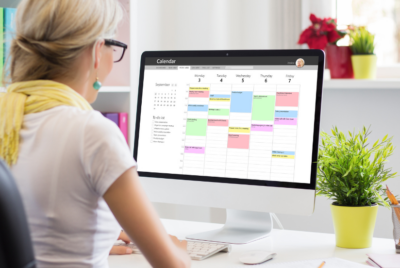Health and Wellness: Taking Care of Physical and Mental Well-Being While Working Remotely
Introduction:
As someone who has experienced the health and wellness challenges and the rewards of working remotely, I understand the importance of maintaining good physical and mental well-being in this unique environment. In this article, I will provide you with practical suggestions and reasons for taking care of yourself while working remotely.
Set Up a Dedicated Workspace:
To ensure productivity and focus, it’s crucial to create a designated area for work. This space should be free from distractions, well-organized, and comfortable. By separating your work area from your personal space, you can maintain a clear boundary between work and leisure time.
Establish a Routine:
Having a routine is key to staying disciplined and maintaining your health and wellness work-life balance. Define a schedule that works for you and stick to it. Set clear boundaries for when you start and end work, and make time for breaks and personal activities. A consistent routine helps create a sense of structure and reduces the risk of overworking or burnout.
Prioritize Breaks:
Taking regular breaks throughout the day is essential for both physical and mental well-being. Use your breaks to stretch, walk around, or engage in activities that help you relax and recharge. Stepping away from your desk and giving your mind and body a break can enhance productivity and creativity.
Incorporate Physical Activity:
Working remotely often involves extended periods of sitting. Incorporating physical activity into your daily routine is crucial for maintaining your health and wellness. Take short exercise breaks, such as stretching or walking, to get your blood flowing and boost energy levels. Engaging in regular physical activity not only improves physical well-being but also enhances mood and cognitive function.
Practice Mindfulness and Stress Relief:
The flexibility of remote work can sometimes lead to increased stress and anxiety. To combat these challenges, practicing mindfulness techniques can be highly beneficial. Set aside time for meditation, deep breathing exercises, or yoga to reduce stress and promote mental well-being. Additionally, engaging in hobbies or activities you enjoy can help alleviate work-related pressures.
Maintain a Healthy Diet:
A nutritious diet plays a vital role in supporting your overall well-being. When working remotely, it’s easy to fall into unhealthy eating habits or rely on quick, processed meals. Make a conscious effort to consume balanced meals that include fruits, vegetables, lean proteins, and whole grains. Fueling your body with the right nutrients boosts energy levels, enhances focus, and improves overall productivity.
Stay Hydrated:
Proper hydration is often overlooked but is essential for optimal physical and mental functioning. Keep a water bottle nearby and make it a habit to drink water regularly throughout the day. Staying hydrated helps maintain concentration, supports digestion, and aids in overall detoxification.
Avoid Excessive Screen Time:
Working remotely often involves spending long hours in front of screens, which can strain your eyes and impact your well-being. To minimize the negative effects of excessive screen time, take frequent breaks to rest your eyes. Use the 20-20-20 rule: every 20 minutes, look away from your screen and focus on an object 20 feet away for 20 seconds. Additionally, consider using blue light filters on your devices and adjusting screen brightness to reduce eye strain.
Socialize and Connect:
Working remotely can sometimes feel isolating. It’s important to prioritize social interactions and maintain connections with colleagues, friends, and family. Schedule virtual coffee breaks, participate in online communities or forums related to your interests, and reach out to coworkers for informal conversations. Building and nurturing social connections can boost morale, combat loneliness, and enhance overall well-being.
Seek Support and Professional Help:
If you’re experiencing difficulties with your mental or physical well-being, don’t hesitate to seek support. Many organizations offer employee assistance programs or counseling services that can provide guidance and assistance. Additionally, online resources, support groups, and therapy services are available to address specific needs. Remember, seeking help is a sign of strength and a proactive step towards better well-being.
Foster Work-Life Balance:
Maintaining your health and wellness work-life balance is crucial for overall well-being. When working remotely, the line between work and personal life can become blurred. Set boundaries, both physical and mental, to separate work time from personal time. Avoid checking work-related emails or engaging in work tasks during your off-hours. By creating a clear distinction between work and personal life, you can reduce stress and enhance satisfaction in both areas.
Take Time Off:
While working remotely offers flexibility, it’s essential to take time off to recharge and rejuvenate. Plan vacations or personal days to disconnect from work completely. Taking breaks from work helps prevent burnout, promotes creativity, and allows you to return to your tasks with renewed energy and enthusiasm. Remember, self-care and relaxation are integral parts of maintaining a healthy work-life balance.
**Conclusion:**
Taking care of your physical and mental well-being is of utmost importance, especially when working remotely. By setting up a dedicated workspace, establishing a routine, prioritizing breaks, incorporating physical activity, practicing mindfulness, maintaining a healthy diet, staying hydrated, limiting screen time, socializing, seeking support, fostering work-life balance, and taking time off, you can ensure a healthier and more fulfilling remote work experience. Prioritizing self-care not only benefits your well-being but also enhances your productivity, creativity, and overall job satisfaction.
**FAQs:**
1. How can I create a productive workspace while working remotely?
2. What are some effective strategies to maintain a healthy work-life balance?
3. Are there any specific exercises or activities recommended for remote workers?
4. How can I manage stress and anxiety while working remotely?
5. What are the potential risks of excessive screen time and how can I mitigate them?





